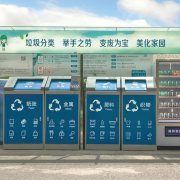BIR Convention in Amsterdam: Critical Raw Materials – Security of Supply Is a “Hot Topic”
At the meeting of the BIR International Environment Council, IEC Chairman Olivier François of the Galloo recycling company stated that a “huge quantity of metals” – including many designated as “critical” – would be required to meet energy transition objectives; as a result, security of supply had become a hot topic. Two guest speakers focused on this issue.
USA: Actions to be taken
According to Robin Wiener, President of the Institute of Scrap Recycling Industries (ISRI), the USA imports more than 50 percent of its consumption of 43 of the 50 critical minerals identified on a United States Geological Survey list. Aluminum, nickel and zinc are already featured on this list, and copper producers have petitioned for the inclusion of copper. Furthermore, the USA has no domestic production for at least 14 of the listed minerals.
The three main pillars of the US critical minerals strategy were to diversify domestic sources, to develop alternatives and to minimize waste and increase supply through more efficient processing, manufacturing and recycling. These objectives would be backed by investment in R&D and by incentives for private industry to move the strategy forward, delegates in Amsterdam were told. The significant financial commitment would include three billion US-Dollar in refining battery materials (lithium, cobalt, nickel and graphite) as well as battery recycling facilities and innovation.
Robin Wiener emphasized that the strategy was clearly not US-centric as it also promoted increasing trade and co-operation with allies and partners (named “friend shoring”) to reduce the USA’s dependence on sources that could be disrupted. For example, there are traditional Free Trade Agreements with 20 countries, including Canada and Mexico, and a limited agreement on these materials with Japan.
In addition, critical mineral agreement negotiations with the EU were ongoing. The focus on critical minerals represented “a transformational point for our global industry”, Robin Wiener underlined. “We need to be a part of this discussion and not get left behind. We should develop a strategy of how we work together.”
EU: Proposal on critical raw materials
Emmanuel Katrakis, Secretary General of the European Recycling Industries’ Confederation (EuRIC) informed the IEC meeting that the European Commission has proposed a set of actions under the Critical Raw Materials Act to safeguard the EU’s access to a secure, affordable and sustainable supply. By 2030, the EU intents to be “not dependent on a single third country for more than 65 percent of its supply of any strategic raw material”.
Another target identified by the Commission is for recycling capacity to be sufficient to produce “at least 15 percent” of the EU’s annual consumption of each strategic raw material. As pointed out by Emmanuel Katrakis, “for most of them we are far, far, far from that.” Now that policymakers had recognized recyclers as “key players”, it was necessary to build an understanding that many critical raw materials were not being recycled at present because companies would be risking bankruptcy. As had been introduced in the USA, he added, “we need a financial pillar that is missing today”.
(Published in GLOBAL RECYCLING Magazine 2/2023, Page 30, Photo: BIR )









